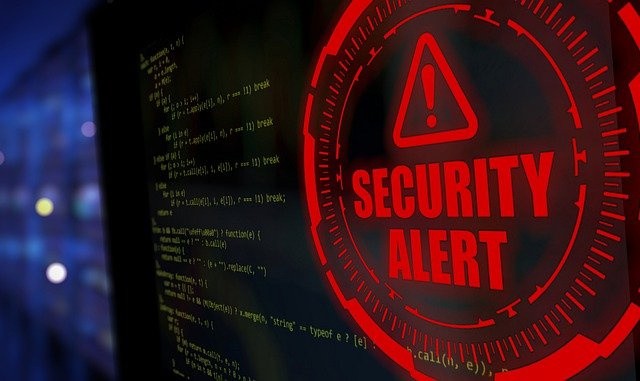
Risk of cyber fraud has never been as high. While many of us were adjusting to life after the pandemic and dealing with working from home, at-home schooling and various lockdowns, cyber criminals have used that as an opportunity for their malicious actions.
In today's unpredictable environment, faced with evolving threats, organizations can only protect themselves if they adopt a proactive approach and stop cybercriminals before they can do serious damage.
Why is cyber security necessary?
Cybersecurity is extremely important as it can help you avoid potentially disastrous cyber attacks. Not only that cyber attacks can have significant financial consequences on your business, but can also cause consequential damage to your reputation. Who would want to do business with a company they can't trust with their confidential data? Your customers are the vital part of your business, and you want to keep them happy and satisfied with your service because the truth is that without them you wouldn't have your business. By implementing security protocols you will be able to prevent cyber attacks and protect confidential data your business deals with.
Most Effective Cyber Security Defense Strategies
Fortunately, there are effective defense strategies you can implement into your business or organization security protocol and reduce your exposure to cyber threats.
Introduce device fingerprinting
Every business or organization should implement device fingerprinting into their cybersecurity protocol as it can stop the cyber attack before it even happens. Device fingerprinting gives you an unique opportunity to identify users' devices by collecting and analysing its software and hardware configuration. The data it collects vary from users IP address, HTTP request headers, time zone and language settings, operating system to any installed plugins or fonts, and much more. By collecting all of these different variables it can create a unique device fingerprint for each user and identify any discrepancies with the fingerprint. For example, you can notice when a user is accessing the system from a different time zone or a suspicious location or even if the IP address has been changed. The discrepancies in the user's device fingerprint can warn you about some malicious actions and prompt further actions like blocking the user or activating additional verification levels.
Educate employees and raise their awareness
All members of your team, regardless of the department, need to understand their role in keeping your business safe from cyber attacks. While your employees might know not to open suspicious email, do they know how dangerous social media quizzes can be? They need to be educated about the cyber risks they might face and how to defend against them because your cybersecurity will only be as strong as its weakest link. You can never know where the threat can come from but by raising the awareness within your team and conducting regular training you can significantly reduce the risk of your business becoming a victim of cyber attack.
Always expect a breach
You need to constantly test your security protocols, update your firewalls and proxy servers, and have a plan in place in case the worst happens. The faster you can deal with the breach, the less financial damage you will have to face. Most of the businesses do not believe the attack will happen to them, so they are not proactive with their security protocol. But since 2010, data breaches have exposed over 38 billion records. That is 4 times over the number of the total population of the Earth. Can you really confidently say that your business will not be impacted?
Implement password policy
In order to protect your business and your customers you need to implement password policy for your employees and also your customers. This will prevent them from reusing passwords or selecting easily guessed passwords and make it easier for cyber criminals to take over their account.
Use Multi-Factor Authentication
Multi-factor authentication adds additional layers of security to the standard methods of online identification. Instead of using only username and password, multi-factor authentication will ask the user to provide special code sent to the user email or phone number, additional password, a Personal Identification Code or even fingerprint.
Backup your data
You need to back up any data that is vital to your business to protect it from accidental data loss, corruption, and unauthorized access. In the case of a cyber attack this backup can be used to restore or recover original data reducing financial impact on your business.
© 2026 ScienceTimes.com All rights reserved. Do not reproduce without permission. The window to the world of Science Times.












